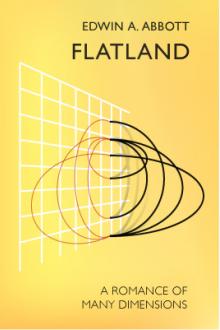Lorna Doone: A Romance of Exmoor, R. D. Blackmore [websites to read books for free txt] 📗

- Author: R. D. Blackmore
Book online «Lorna Doone: A Romance of Exmoor, R. D. Blackmore [websites to read books for free txt] 📗». Author R. D. Blackmore
Of the sheep upon the mountain, and the sheep upon the western farm, and the cattle on the upper barrows, scarcely one in ten was saved; do what we would for them, and this was not through any neglect (now that our wits were sharpened), but from the pure impossibility of finding them at all. That great snow never ceased a moment for three days and nights; and then when all the earth was filled, and the topmost hedges were unseen, and the trees broke down with weight (wherever the wind had not lightened them), a brilliant sun broke forth and showed the loss of all our customs.
All our house was quite snowed up, except where we had purged a way, by dint of constant shovellings. The kitchen was as dark and darker than the cider-cellar, and long lines of furrowed scollops ran even up to the chimney-stacks. Several windows fell right inwards, through the weight of the snow against them; and the few that stood, bulged in, and bent like an old bruised lanthorn. We were obliged to cook by candle-light; we were forced to read by candle-light; as for baking, we could not do it, because the oven was too chill; and a load of faggots only brought a little wet down the sides of it.
For when the sun burst forth at last upon that world of white, what he brought was neither warmth, nor cheer, nor hope of softening; only a clearer shaft of cold, from the violet depths of sky. Long-drawn alleys of white haze seemed to lead towards him, yet such as he could not come down, with any warmth remaining. Broad white curtains of the frost-fog looped around the lower sky, on the verge of hill and valley, and above the laden trees. Only round the sun himself, and the spot of heaven he claimed, clustered a bright purple-blue, clear, and calm, and deep.
That night such a frost ensued as we had never dreamed of, neither read in ancient books, or histories of Frobisher. The kettle by the fire froze, and the crock upon the hearth-cheeks; many men were killed, and cattle rigid in their head-ropes. Then I heard that fearful sound, which never I had heard before, neither since have heard (except during that same winter), the sharp yet solemn sound of trees burst open by the frost-blow. Our great walnut lost three branches, and has been dying ever since; though growing meanwhile, as the soul does. And the ancient oak at the cross was rent, and many score of ash trees. But why should I tell all this? the people who have not seen it (as I have) will only make faces, and disbelieve; till such another frost comes; which perhaps may never be.
This terrible weather kept Tom Faggus from coming near our house for weeks; at which indeed I was not vexed a quarter so much as Annie was; for I had never half approved of him, as a husband for my sister; in spite of his purchase from Squire Bassett, and the grant of the Royal pardon. It may be, however, that Annie took the same view of my love for Lorna, and could not augur well of it; but if so, she held her peace, though I was not so sparing. For many things contributed to make me less good-humoured now than my real nature was; and the very least of all these things would have been enough to make some people cross, and rude, and fractious. I mean the red and painful chapping of my face and hands, from working in the snow all day, and lying in the frost all night. For being of a fair complexion, and a ruddy nature, and pretty plump withal, and fed on plenty of hot victuals, and always forced by my mother to sit nearer the fire than I wished, it was wonderful to see how the cold ran revel on my cheeks and knuckles. And I feared that Lorna (if it should ever please God to stop the snowing) might take this for a proof of low and rustic blood and breeding.
And this I say was the smallest thing; for it was far more serious that we were losing half our stock, do all we would to shelter them. Even the horses in the stables (mustered all together for the sake of breath and steaming) had long icicles from their muzzles, almost every morning. But of all things the very gravest, to my apprehension, was the impossibility of hearing, or having any token of or from my loved one. Not that those three days alone of snow (tremendous as it was) could have blocked the country so; but that the sky had never ceased, for more than two days at a time, for full three weeks thereafter, to pour fresh piles of fleecy mantle; neither had the wind relaxed a single day from shaking them. As a rule, it snowed all day, cleared up at night, and froze intensely, with the stars as bright as jewels, earth spread out in lustrous twilight, and the sounds in the air as sharp and crackling as artillery; then in the morning, snow again; before the sun could come to help.
It mattered not what way the wind was. Often and often the vanes went round, and we hoped for change of weather; the only change was that it seemed (if possible) to grow colder. Indeed, after a week or so, the wind would regularly box the compass (as the sailors call it) in the course of every day, following where the sun should be, as if to make a mock of him. And this of course immensely added to the peril of the drifts; because they shifted every day; and no skill or care might learn them.
I believe it was on Epiphany morning, or somewhere about that period, when Lizzie ran into the kitchen to me, where I was thawing my goose-grease, with the dogs among the ashes—the live dogs, I mean, not the iron ones, for them we had given up long ago,—and having caught me, by way of wonder (for generally I was out shoveling long before my 'young lady' had her nightcap off), she positively kissed me, for the sake of warming her lips perhaps, or because she had something proud to say.
'You great fool, John,' said my lady, as Annie and I used to call her, on account of her airs and graces; 'what a pity you never read, John!'
'Much use, I should think, in reading!' I answered, though pleased with her condescension; 'read, I suppose, with roof coming in, and only this chimney left sticking out of the snow!'
'The very time to read, John,' said Lizzie, looking grander; 'our worst troubles are the need, whence knowledge can deliver us.'
'Amen,' I cried out; 'are you parson or clerk? Whichever you are, good-morning.'
Thereupon I was bent on my usual round (a very small one nowadays), but Eliza took me with both hands, and I stopped of course; for I could not bear to shake the child, even in play, for a moment, because her back was tender. Then she looked up at me with her beautiful eyes, so large, unhealthy and delicate, and strangely shadowing outward, as if to spread their meaning; and she said,—
'Now, John, this is no time to joke. I was almost frozen in bed last





Comments (0)